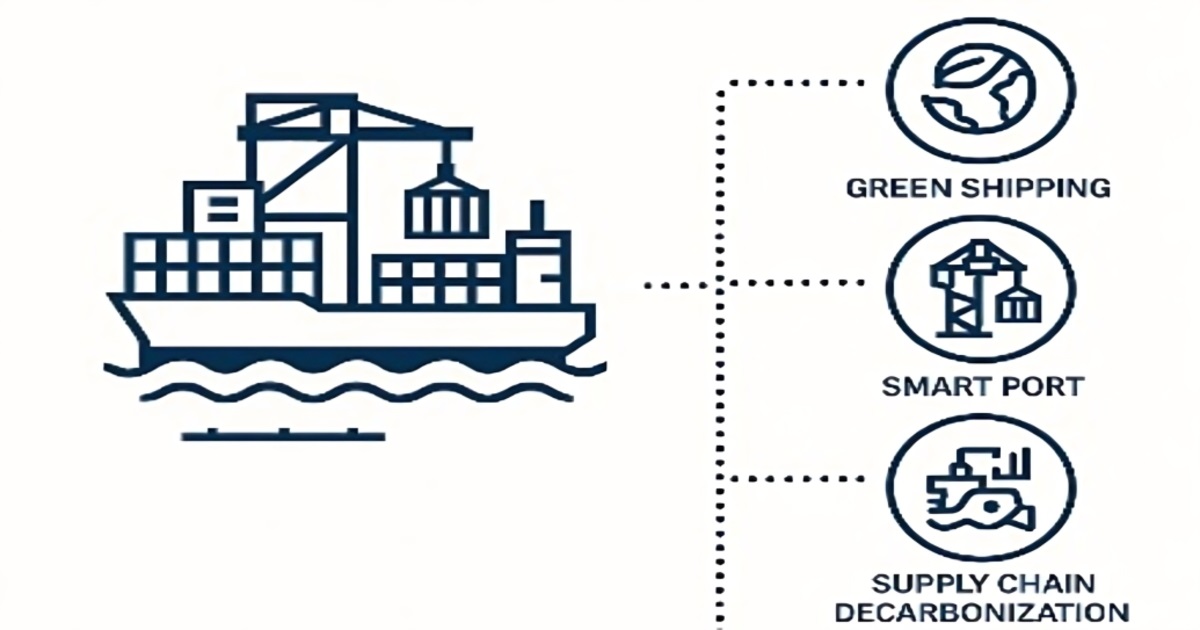Sustainable Logistics Management: Research Focus on Port and Maritime Transportation
A special issue of Sustainability (ISSN 2071-1050). This special issue belongs to the section "Sustainable Transportation".
Deadline for manuscript submissions: 11 February 2026 | Viewed by 963

Special Issue Editor
Interests: port; management; strategy
Special Issues, Collections and Topics in MDPI journals
Special Issue Information
Dear Colleagues,
The maritime and port sectors are undergoing profound transformations due to the combined pressure of sustainability imperatives, digital innovation, and global trade dynamics. This Special Issue aims to explore sustainable logistics management within port and maritime transportation systems and to collect original contributions that address environmental, social, economic, and governance challenges in the logistics chain, with an emphasis on ports as critical nodes in global supply networks.
We invite theoretical, empirical, and case-based research that investigates how port authorities, logistics operators, and maritime companies are adapting strategies, technologies, and policies toward more sustainable operations, and the topics may include, but are not limited to, decarbonization strategies, digital twin applications in logistics, circular economy in port areas, smart port governance, modal shift incentives, and sustainability assessment frameworks.
This Special Issue aims to advance academic and practical understanding by highlighting contradictions between sustainability discourse and practice, proposing innovative tools, and drawing attention to the global–local interface in maritime logistics sustainability.
We encourage interdisciplinary approaches and welcome submissions from scholars, practitioners, and policymakers.
Dr. Vitor Caldeirinha
Guest Editor
Manuscript Submission Information
Manuscripts should be submitted online at www.mdpi.com by registering and logging in to this website. Once you are registered, click here to go to the submission form. Manuscripts can be submitted until the deadline. All submissions that pass pre-check are peer-reviewed. Accepted papers will be published continuously in the journal (as soon as accepted) and will be listed together on the special issue website. Research articles, review articles as well as short communications are invited. For planned papers, a title and short abstract (about 250 words) can be sent to the Editorial Office for assessment.
Submitted manuscripts should not have been published previously, nor be under consideration for publication elsewhere (except conference proceedings papers). All manuscripts are thoroughly refereed through a single-blind peer-review process. A guide for authors and other relevant information for submission of manuscripts is available on the Instructions for Authors page. Sustainability is an international peer-reviewed open access semimonthly journal published by MDPI.
Please visit the Instructions for Authors page before submitting a manuscript. The Article Processing Charge (APC) for publication in this open access journal is 2400 CHF (Swiss Francs). Submitted papers should be well formatted and use good English. Authors may use MDPI's English editing service prior to publication or during author revisions.
Keywords
- sustainable logistics
- port governance
- maritime transportation
- green shipping
- smart ports
- supply chain decarbonization
- digital transformation
- blue economy
- environmental policy
- circular economy in ports
Benefits of Publishing in a Special Issue
- Ease of navigation: Grouping papers by topic helps scholars navigate broad scope journals more efficiently.
- Greater discoverability: Special Issues support the reach and impact of scientific research. Articles in Special Issues are more discoverable and cited more frequently.
- Expansion of research network: Special Issues facilitate connections among authors, fostering scientific collaborations.
- External promotion: Articles in Special Issues are often promoted through the journal's social media, increasing their visibility.
- Reprint: MDPI Books provides the opportunity to republish successful Special Issues in book format, both online and in print.
Further information on MDPI's Special Issue policies can be found here.





